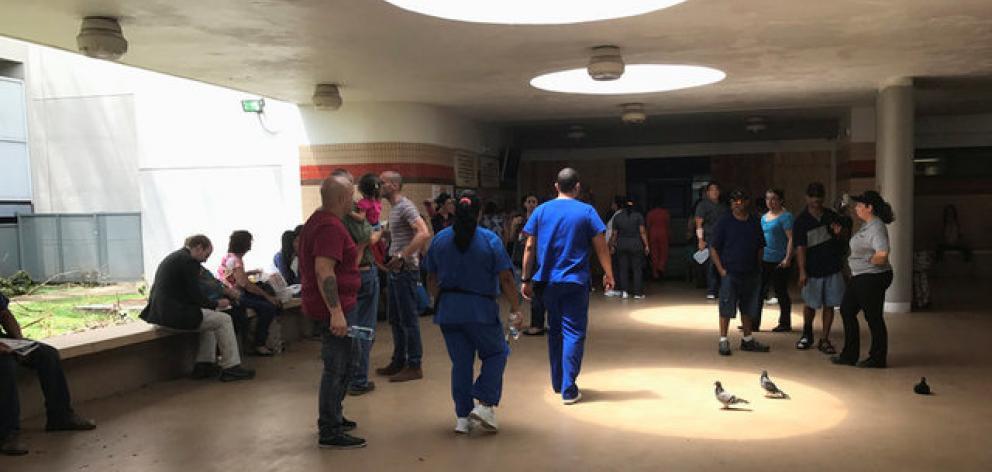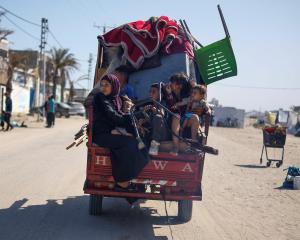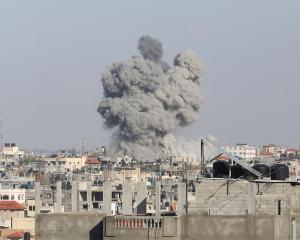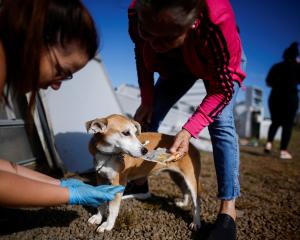
Puerto Rico's medical services are in critical condition in the wake of Hurricane Maria.
The strongest storm to hit the island in decades has left hospitals flooded, strewn with rubble and dependent on diesel generators to keep the neediest patients alive.
The precarious shape of the island’s medical facilities is adding to the misery and devastation of this U.S. territory, whose 3.4 million residents are American citizens. For some, the only option is to evacuate to the United States for treatment.
Among them is Cheira Ruiz and her baby girl Gabriellyz, who was born two weeks ago with a serious heart defect. The newborn was admitted to the Centro Cardiovascular de Puerto Rico in the capital shortly before Maria slammed into the island last Wednesday, but it was impossible for doctors to operate in such precarious conditions.
Gabriellyz was among the first infants cleared to take a medical flight out of Puerto Rico since the storm. Her parents, who live two hours south of the capital, found out the good news Friday when emergency officials knocked on their door in the town of Guanica and told them to pack for the trip to Miami. With phone service out, the doctors had called one of the island's radio stations, which broadcast their plea for help in locating the couple. Hours before the flight was scheduled to depart, the parents learned there was only room for one of them. Mother and baby would fly alone to Miami.
“I’m trying to be strong,” Ruiz said on Saturday.
In the days since the storm, the island's residents have awakened to an altered reality. Food is in short supply. The island's electrical grid is down and may remain so for months. Motorists and pedestrians queue for blocks trying to secure scarce fuel to power vehicles and generators.
Cellular service, internet, and email have virtually disappeared, hurling a modern society into a bygone era; radio has become a primary source of information.
For hospitals across this region, the challenges are mounting. After the power went out, back-up generators at some hospitals failed quickly. Other hospitals are running critically low on diesel. Fuel is so precious that deliveries are made by armed guards to prevent looting, according to Dr. Ivan Gonzalez Cancel, a cardiovascular surgeon and director of the heart transplant program at Centro Cardiovascular.
“Another hospital wants to transfer two critical patients here because they don’t have electricity,” Gonzalez Cancel said. “We can’t take them. We have the same problem.”
Medical staffers are also running low on gasoline for their daily commutes to work. Puerto Ricans are queuing as long as seven hours at the island's few functioning filling stations. Marilyn Rivera Morales, a nurse at the center, said she had enough petrol to drive to the hospital for two more days.
“How will they keep coming here if they don’t have gas?” Gonzalez Cancel wondered.











